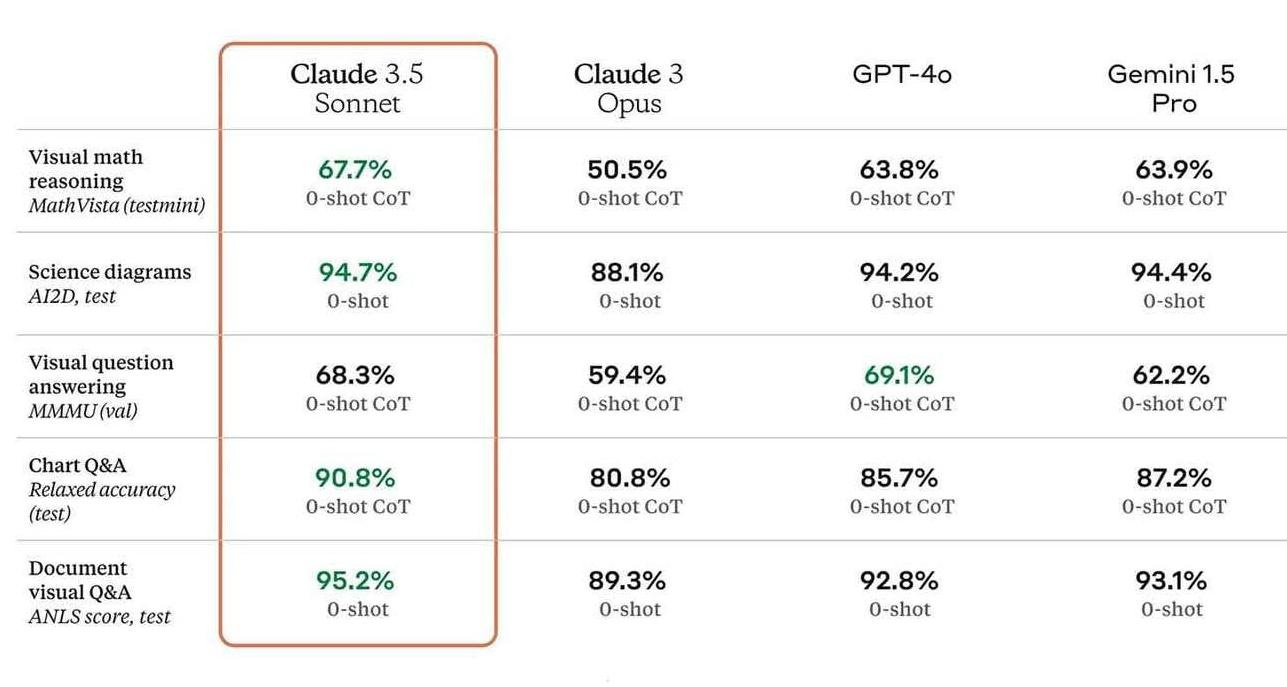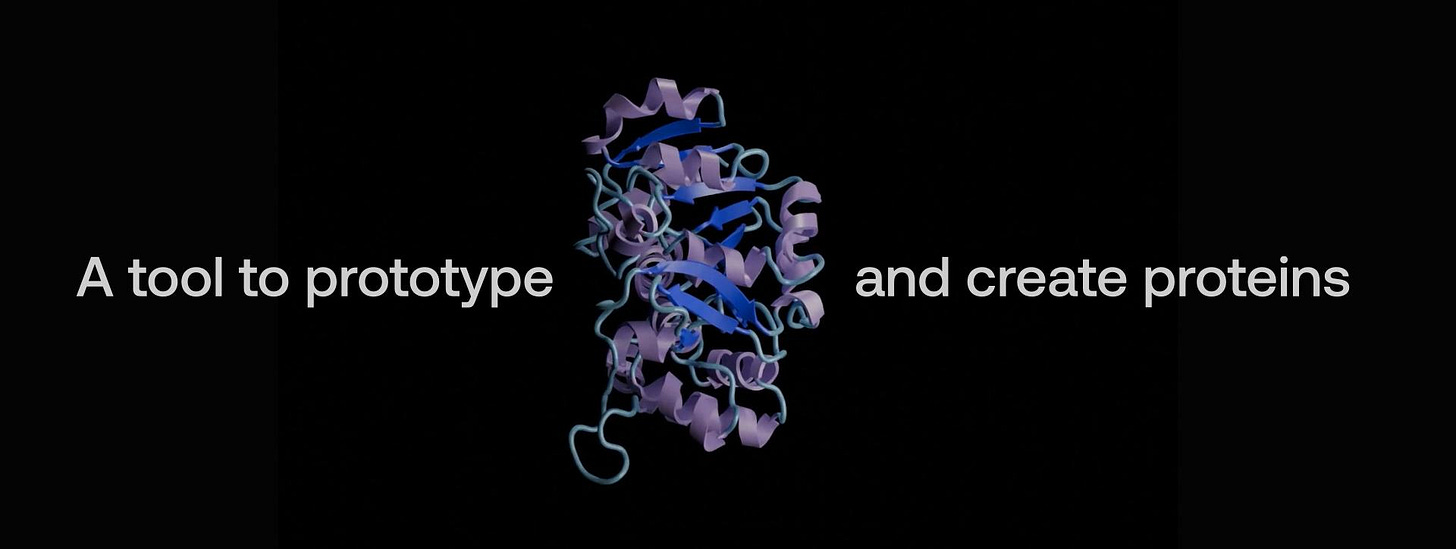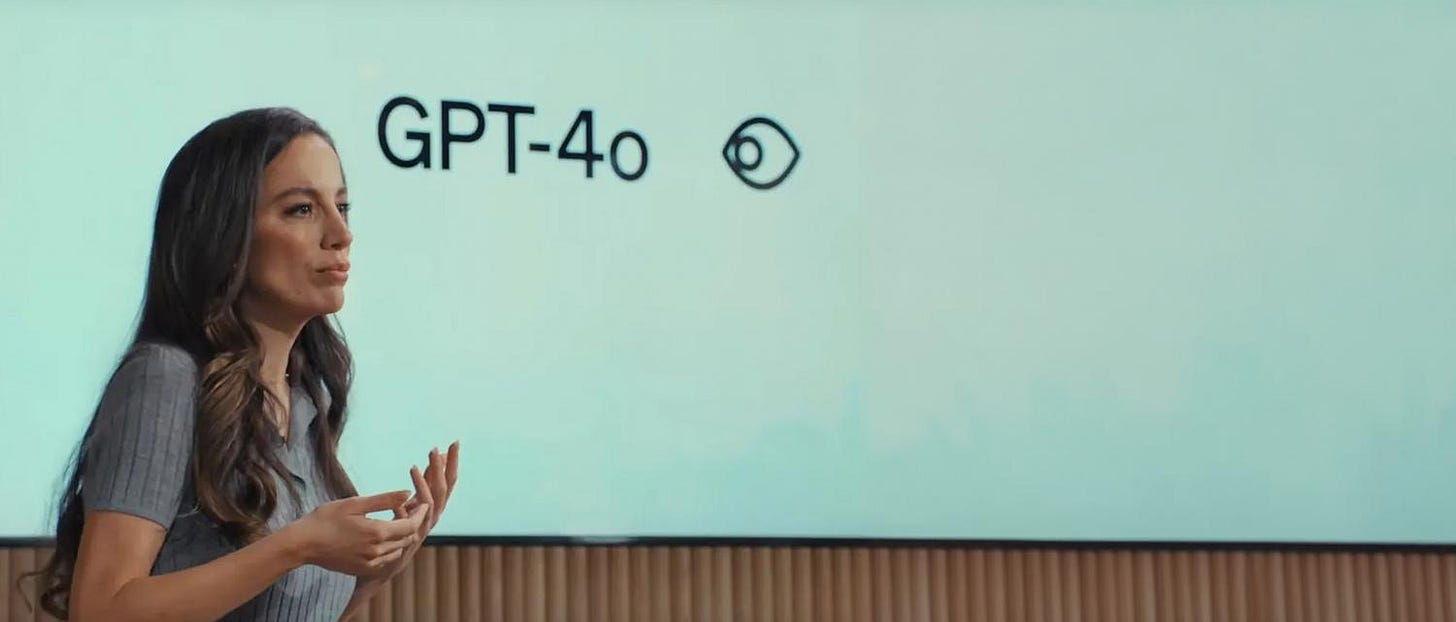GPT-4o Dethroned 👑 Parkinson's Breakthrough 🧬 Ilya's Back 👨
Your weekly dose of AI insights
Welcome to this week in AI.
This week, OpenAI co-founder Ilya Sutskever launches a new AI safety venture, while Anthropic's Claude 3.5 Sonnet sets new benchmarks. Plus, a groundbreaking blood test shows promise in predicting Parkinson's years before symptoms appear.
Let’s get into it!
👋 If you’re new here, welcome!
Subscribe to get your AI insights every Thursday.
Former OpenAI Co-Founder Launches AI Startup With Focus on Safety
Former co-founder of OpenAI and computer scientist in machine learning, Ilya Sutskever, has launched a new company to address concerns over AI development.
Safe Superintelligence Inc (SSI), an AI startup with the singular mission of developing safe AI systems, seeks to insulate safety research and development from short-term commercial pressures.
Sutskever, also OpenAI’s former chief scientist, is betting on a different approach with SSI, prioritising safety as a core value rather than an afterthought.
“We urgently need to figure out how to steer and control AI systems much smarter than us,” Sutskever said following his departure from OpenAI in May.
The company is co-founded by Daniel Gross, former AI lead at Apple and Daniel Levy, a former member of technical staff at OpenAI.
Why it Matters
SSI's launch touches on a growing concern in the tech industry about the rapid advancement of AI and the potential risks associated with unchecked development.
Advancements are accelerating, highlighting the need for initiatives like SSI, which advocate for a balanced and wary approach to harnessing AI's potential responsibly.
🌐 Safe Superintelligence Inc. website
GPT-4o Dethroned, Claude Reigns Supreme
Anthropic's latest AI model, Claude 3.5 Sonnet, is accelerating development in the generative AI field, outperforming rivals like OpenAI's GPT-4o in key benchmarks such as coding and reasoning, according to the company’s latest figures.
It marks the latest development in a fierce competition between Anthropic and OpenAI. Initially, Claude Opus surpassed GPT-4, but OpenAI's GPT-4o reclaimed the lead. Now, Anthropic's Claude 3.5 Sonnet is once again at the forefront, the company says.
Anthropic plans to release even more powerful models, Claude 3.5 Haiku and Claude 3.5 Opus, later this year.
Why it Matters
The release of Claude 3.5 Sonnet signifies a major step forward in generative AI capabilities and affordability. Its superior performance and cost-effectiveness make advanced AI models more accessible to businesses and individuals.
Notably, Claude 3.5 Sonnet has set a new industry benchmark in coding proficiency, scoring 92.0% in zero-shot code evaluation compared to 90.2% for GPT-4o and 84.1% for Google's Gemini 1.5 Pro.
It’s not just theoretical — it's already being applied. Startups and open-source projects can harness Claude 3.5 Sonnet's coding proficiency to develop autonomous AI agents capable of writing and debugging code.
Anthropic Artifacts
Anthropic's new feature, Artifacts, is a dedicated workspace for users to collaborate with the AI on generated content.
Artifacts demonstrates the evolution from the chat interface to more advanced collaboration tools. How we interact with these models will change over time as the technology matures.
📝 Here are some examples of the new feature
Parkinson’s Diagnosis Breakthrough
Researchers have developed a new blood test that utilises AI to predict Parkinson's disease years before the onset of symptoms.
By identifying eight key proteins linked to inflammation and protein degradation, the test has demonstrated 79% accuracy in predicting Parkinson's development, in some cases up to seven years before symptoms manifest.
Why it Matters
This breakthrough has the potential to speed up Parkinson's diagnosis and treatment.
Early detection could enable timely intervention and the development of new drugs targeting the identified protein markers.
The ability to predict Parkinson's years in advance opens up possibilities for preventative measures and treatments that could slow or even halt the disease's progression.
AI Simulates 500 Million Years of Evolution
Biotech startup Evolutionary Scale has introduced ESM3, an AI model that can design and simulate new proteins, mimicking millions of years of natural evolution.
Trained on a massive dataset of biological data and boasting 98 billion parameters, ESM3 is the largest biological model ever created.
ESM3 generated a novel fluorescent protein that’s 58% different from known structures — a feat that would typically take nature 500 million years of evolution.
Why it Matters
Founded by former Meta researchers and backed by Amazon and Nvidia, Evolutionary Scale's ESM3 is a big step towards a future where biology can be programmed like computer code.
This advancement could disrupt various fields, from healthcare to environmental science, by enabling the design of novel proteins for targeted therapies, biofuels, or even materials with unprecedented properties.
It’s a promising step to accelerate scientific discovery and innovation across numerous industries.
OpenAI is Gobbling Startups
OpenAI has recently acquired two companies: Rockset, a real-time analytics database company, and Multi, a Mac-oriented collaboration and screen-sharing platform.
While the financial terms of the deals were undisclosed, these strategic acquisitions are expected to significantly enhance OpenAI's capabilities in real-time data processing and enterprise collaboration.
Why it Matters
The acquisition of Rockset will bolster OpenAI's ability to handle real-time data streams, optimising applications like chatbots and AI-driven analytics.
It could also make OpenAI's products more appealing to enterprises that require up-to-the-minute insights.
Integrating Multi's collaboration tools could enhance ChatGPT's features, potentially leading to a more robust platform that caters to the needs of businesses and remote teams.
It promises to strengthen OpenAI's position in the enterprise market while hinting at greater collaboration and real-time data features for ChatGPT.
The acquisition of Multi aligns with OpenAI's growing focus on enterprise solutions.
AI in Finance: An Incredible Boost
A Citigroup survey found that 93% of financial institutions believe AI will increase profitability, potentially adding $170 billion to the global banking sector by 2028.
Generative AI, in particular, is expected to automate internal tasks like content management and coding.
The rise of AI-powered bots as customers could also reshape finance, particularly in wealth management and insurance.
Why it Matters
AI's potential to boost profitability and transform financial services is attractive for investors and industry stakeholders.
The technology's ability to automate tasks, enhance decision-making, and personalise customer experiences could redefine the industry, Citigroup says.
However, challenges like talent acquisition and the overhang from legacy technology must be addressed for mass adoption and use.
Additionally, the emergence of non-human customers and the increasing prevalence of AI-powered bots also raise important questions about the future of financial interactions and the evolving role of humans in the industry.
Record Labels Hit Back
The world's biggest record labels are filing a lawsuit against AI song generators Suno and Udio, alleging copyright infringement.
The labels, which include Sony Music Entertainment, Universal Music Group Recordings and Warner Records, claim AI startups illegally exploit artists' work.
Suno and Udio say their technology produces original music.
seeking an eye-watering $150,000 per infringed work, amounting to a significant financial stake, the labels intend to halt the progression of AI music before it has a chance to get off the ground.
Why it Matters
The lawsuit is a major flashpoint in the ongoing debate over AI's role in music creation.
Underscoring the tension between technological innovation and copyright protection, the lawsuit has potential ramifications for the future of both industries.
The outcome could set a precedent for how AI is used in music and other creative fields, impacting artists, developers, and consumers.
It also raises broader questions about the nature of creativity and originality in the age of AI.
ChatGPT's Voice Mode Delayed Again
OpenAI has announced a delay in the launch of ChatGPT's Voice Mode, a feature that allows for more natural, real-time conversations with AI.
The delay pushes back the initial alpha test for ChatGPT Plus users by a month, with the goal of providing access to all Plus users by the fourth quarter of this year.
Why it Matters
This delay, while disappointing to many users, reinforces OpenAI's touted commitment to delivering a safe and reliable product.
The company is taking the extra time to improve content detection, refine the user experience, and ensure the system can handle the expected demand.
“We’re working on improving the user experience and preparing our infrastructure to scale to millions while maintaining real-time responses.”
- OpenAI’s X announcement
That’s a Wrap!
If you want to chat about what I wrote, you can reach me through LinkedIn.
Or give my editor a bell through his LinkedIn here.
If you liked it, give it a share!









